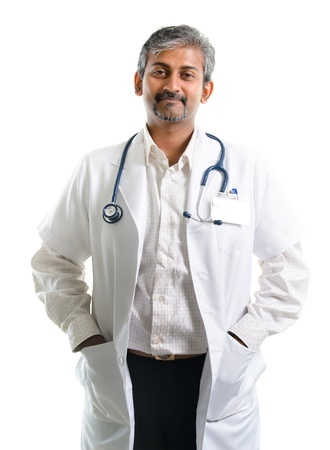
Because of the healthcare reform (also known as the Affordable Care Act or Obamacare), an additional 32 million Americans are insured. Despite such an increase in demand, according to the U.S. Department of Health and Human Services, there continues to be a shortage in primary care physicians (and other specialties). The physician supply is expected to increase only by 7% in the next 10 years. Without increases in residency training, physician shortages will only worsen. To ensure an adequate physician workforce, many agree that there must be an end to the Medicare freeze on residency training. While a low number of residency training positions affect all medical school graduates, international medical graduates have a lot more to worry about. (More on this later.)
Every year, thousands of foreign trained doctors come to the United States with the hope of continuing their clinical career. Some of these immigrants are world renowned experts; yet, to practice medicine in the US, they must go through the grueling, expensive and time-consuming process of certification; including the completion of a second residency. While international medical graduates (IMGs) may not be the answer to the rising physician shortage, rethinking the certification process, the expense, and easing the transition can go a long way. Then, there are the test scores; which if not very high, may hinder many IMGs from getting into a residency program of their choice. With a few bumps, an IMG can complete the whole process in about 8 years, if not more. Why such a path?
The process. Medical schools outside the United States and Canada vary in educational standards, curriculum, and evaluation methods. The Educational Commission for Foreign Medical Graduates (ECFMG), through its program of certification, assesses whether physicians graduating from these schools are ready to enter programs of graduate medical education in the United States (https://www.ecfmg.org/forms/certfact.pdf). The examination requirements for ECFMG Certification include passing a three step exams of the United States Medical Licensing Examination (USMLE). Step 1 assesses whether you understand and can apply important concepts of the sciences basic to the practice of medicine, with special emphasis on principles and mechanisms underlying health, disease, and modes of therapy (https://www.usmle.org/step-1/). Step 2 assesses whether you can apply medical knowledge, skills, and understanding of clinical science essential for the provision of patient care under supervision and includes emphasis on health promotion and disease prevention. Step 2 Clinical Knowledge is constructed according to an integrated content outline that organizes clinical science material along two dimensions: physician task and disease category (https://www.usmle.org/step-2-ck/). Step 2 Clinical Skills uses standardized patients to test medical students and graduates on their ability to gather information from patients, perform physical examinations, and communicate their findings to patients and colleagues (https://www.usmle.org/step-2-cs/). Step 3 assesses whether you can apply medical knowledge and understanding of biomedical and clinical science essential for the unsupervised practice of medicine, with emphasis on patient management in ambulatory settings. It is the final examination in the USMLE sequence leading to a license to practice medicine without supervision (https://www.usmle.org/step-3/).
Of the thousands of IMGs who apply for ECFMG certification, only one-half are successful in completing all the steps and ultimately achieve certification. Then comes the challenge of being accepted into a residency program. As stated earlier, while a low number of residency training positions affect all medical school grads, IMGs are affected the most. In fact, the residency match rate for IMGs who applied for residencies through the National Match System is half of that of American graduates. Having low test scores can have a bearing on where you are accepted. Thus, passing alone is not enough.
The expense. For students / graduates of medical schools located outside the US and Canada, and testing within the US, step 1 examination fee is $850; step 2 CK is $850, step 2 CS is $1,480; Extension of Eligibility period is $70; Testing Region Change $65; Rescheduling fee, up to $1,230 (exception: applicants who may have come in contact with anyone with Ebola); Score recheck, $80 per exam; Exam chart, $50; CSA History chart, $50; Paper Transcript, $65; Electronic Transcript, $75. These are just the basic fees for the examination. There are additional fees for Visa sponsorship and other services. While a few thousand dollars may seem like a small investment, the reality is that, most applicants run out of money before they can complete all required steps. This leads to more challenges: seeking employment and keeping it.
The challenges discussed here are meant to inform you, not to discourage you. As an international medical graduate, there were many challenges I did not anticipate, and my hope is that these words help to prepare other IMG physicians for the process of becoming eligible to practice medicine in the United States. In future posts, I’ll continue to share some lessons learned, including how to prepare for a job search.
